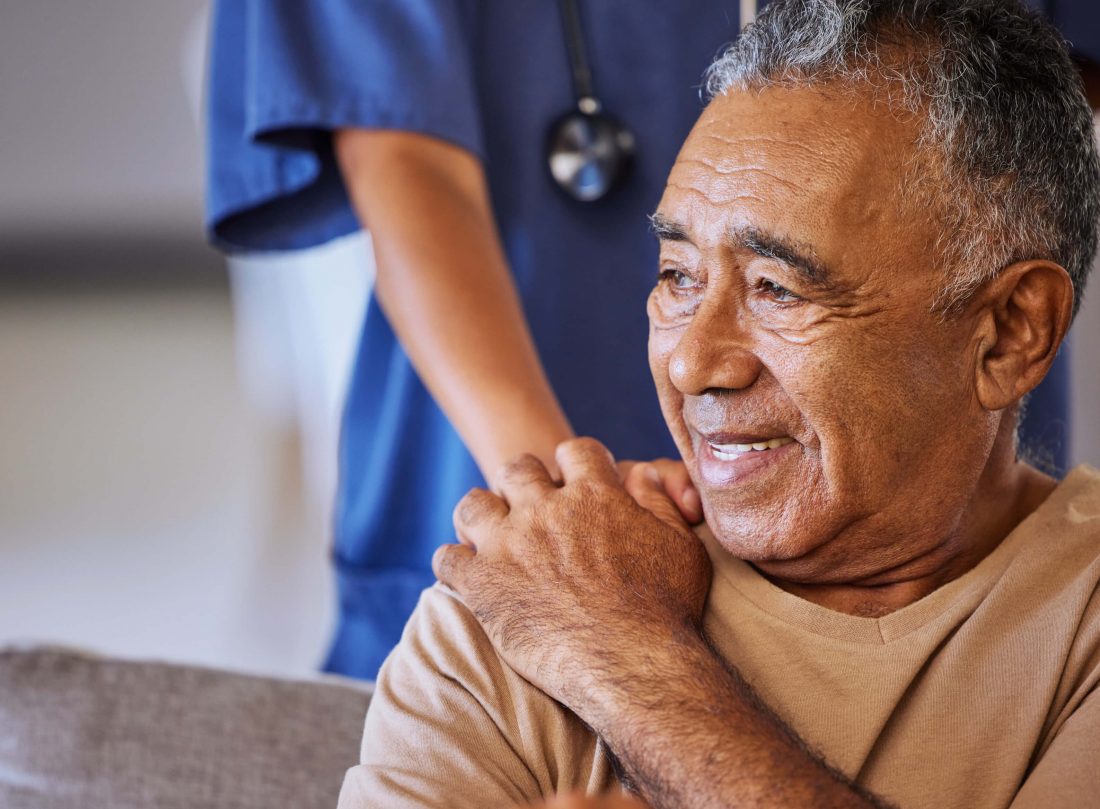Information I need:
Resources you can access:
Living with cancer
For more information about living with liver cancer read this booklet from the Cancer Council
About the Liver
For information about the liver and what it does
Non-English resources
For resources in languages other than English
Cancer misconceptions
For answers to cancer misconceptions
Information for Carers and Family
A cancer diagnosis and treatment may be a confusing time for family and carers who could be struggling with feelings of fear, anxiety, anger, depression and loss. They may also be overwhelmed by changes to relationships and lifestyle, and by their new role and responsibilities.

Resources you can access:
Caring for someone with cancer
What does it mean to be a carer?
Coordinating practical help and care
When friends and family say “let me know what I can do” the Gather My Crew app can help
organise the help and care you need. Download the app or read helpful tips and real stories.
Home help and assistance
You may be eligible for home help and assistance from My Aged Care Australia.
You can find specialist palliative care services in your local area on the Palliative Care
Australia website.
Financial assistance
Financial help may be available to you if you provide daily care.
Cancer Australia
Palliative care
Palliative Care Australia provides a comprehensive range of multilingual resources, as
well as thorough information on financial assistance provided by the Victorian and Federal
governments.
Living with Cancer
Living with cancer can be really tough, but with the right support, information, and self-care, you might find it a bit easier to manage this journey. It might help to lean on loved ones and seek support from medical professionals and support communities. These communities can provide a safe space for sharing concerns, asking questions and gaining insights from people who are in a similar situation. Eating well, regular exercise and managing stress may also help improve overall health.
This selection of resources is not extensive and for your reference only. It is important to speak with a healthcare professional regarding your treatment plan. The intent of providing this material is to inform and not to offer advice, and any information provided should be
discussed with your healthcare professional and does not replace their advice.

Resources you can access:
Eating well
A healthy, balanced diet is important when you have cancer.5
Search the Dieticians Association of Australia website for dieticians in
your area who specialise in oncology.
What are the best foods to eat? Refer to the Liver Foundation’s guide to
eating for your liver with healthy recipes provided.
Exercise
Regular exercise helps to improve general health and well-being and
may also be an effective way to help with the physical, mental and
emotional effects of cancer.6
Mental health support
Up to 40% of cancer patients may experience clinically significant mental
health issues, including depression and anxiety.7
The Australian Psychological Society website allows you to search for
psychologists in the area who specialise in cancer support.
Taking care of your mental health is crucial. If you’re experiencing
anxiety, depression, or other mental health challenges, Beyond Blue
offers valuable resources and support. Visit Beyond Blue for information,
online forums, and professional help. Remember, reaching out is a sign
of strength.
Call a counsellor on 1300 22 4636
Cancer and work
Many patients and carers continue to work during the cancer treatment
and recovery period.8 Cancer Council provides support and resources
helping to make attending work or returning to work easier for patients,
carers and survivors, their employers and colleagues.
Legal, workplace and financial planning referral services
A cancer diagnosis may mean a loss of income and out-of-pocket
treatment costs.9 Cancer Council connects people affected by cancer
with a volunteer professional in the community who will provide advice
and assistance.
Survivorship
The Australian Cancer Survivorship Centre has developed information
resources and events to help people move from initial treatment to
post treatment and beyond, including those receiving maintenance
treatments.
Connecting with your GP
Under Medicare, all cancer patients are eligible for subsidised allied
healthcare.10
Chronic Disease Management Plans (CDMP) – which include General
Practitioner Management Plans (GPMPs) and Team Care Arrangements
(TCAs) – can help you access valuable services required for ongoing
maintenance of cancer-related health issues.
SPEAK TO YOUR HEALTHCARE TEAM ABOUT A FORMAL CARE
PLAN
Connecting with a Liver Nurse
Liver Foundation nurse-led free support line: 1800 841 118 (Mon to Fri
8-6pm).
If you don’t speak English, Call TIS National on 131 450 and tell them
you want to speak to the Liver Foundation Support Line.
Cancer Council patient support services
Cancer Council support line: 13 11 20 (Mon to Fri 9am–5pm)
Cancer Council translator service: 13 14 50 (Mon to Fri 9am–5pm)
We hope you find this website helpful. For advice on medicines or any health-related matters, please contact your Doctor or Health Care Professional.
For medical emergencies please dial 000 immediately.
You should report side effects to the Therapeutic Goods Administration (TGA) online at
www.tga.gov.au/safety/reporting-problems.
References: 1. Cancer Council. Causes of liver cancer. Available online: https://www.cancer.org.au/cancer-information/types-of-cancer/liver-cancer [Accessed May 2025]. 2. Torre L et al. Cancer Epidemiol Biomarkers Prev. 2016;25:16–27. 3. Allemani C et al. Lancet. 2015;385:977–1010. 4. Subramaniam S et al. Chin Clin Oncol. 2013;2:33. 5. Cancer Council. Food and Nutrition. Available online: https://www.cancer.org.au/cancer-information/causes-and-prevention/diet-and-exercise/food-and-nutrition [Accessed May 2025]. 6. Cancer Council. Move your body. Available online: https://www.cancer.org.au/cancer-information/causes-and-prevention/diet-and-exercise/move-your-body [Accessed May 2025]. 7. Cancer Council Victoria. Mental health: the forgotten impact of cancer. May 2020. Available online: https://www.cancervic.org.au/about/stories/mental-health-cancer.html [Accessed May 2025]. 8. Cancer Council. Cancer, work and you. Available online: https://www.cancer.org.au/support-and-services/cancer-work-and-you [Accessed May 2025]. 9. Cancer Council. Legal, Workplace and Financial Planning Referral Services. Available online: https://www.cancer.org.au/support-and-services/practical-and-financial-assistance/pro-bono-program [Accessed May 2025]. 10. Australian Government. Department of Human Services. Education guide - Chronic disease GP Management Plans and Team Care Arrangements. Available online: https://www.humanservices.gov.au/organisations/health-professionals/topics/education-guide-chronic-disease-gpmanagement-plans-and-teamcare-arrangements/33191 [Accessed May 2025].
This website is an information resource that is only for Australian residents. It is not intended to replace the advice of your healthcare professional. Speak to your healthcare professional if you have any questions about your condition or treatment.

